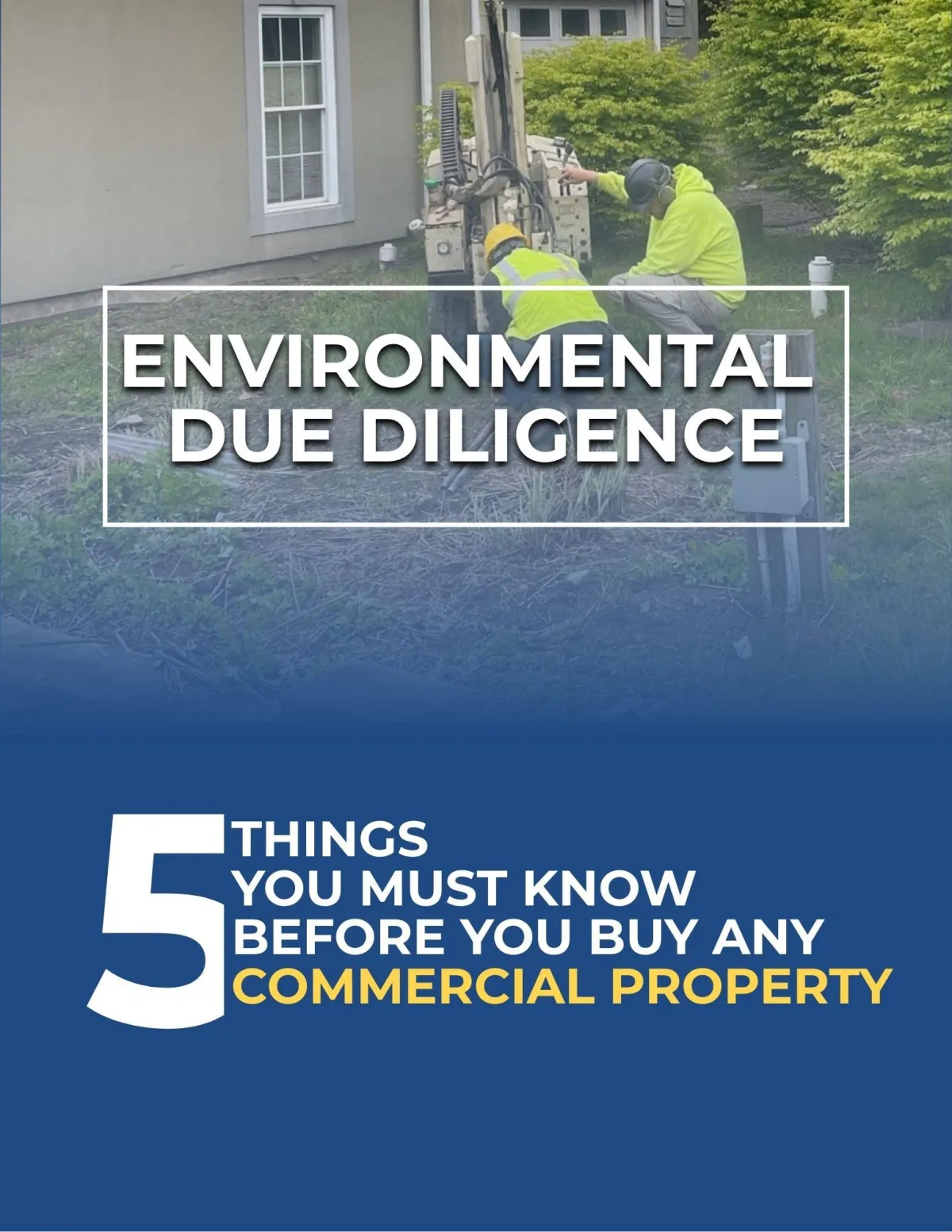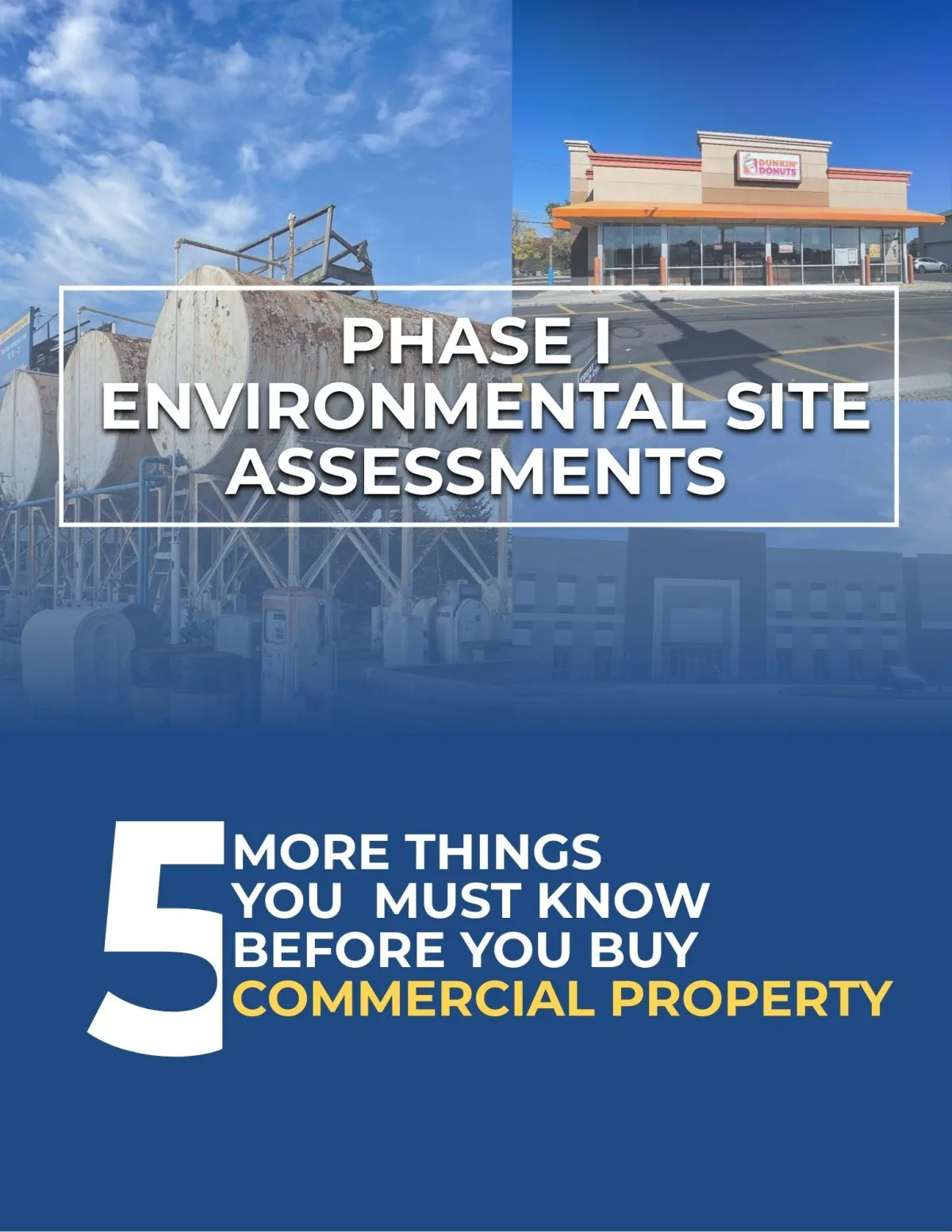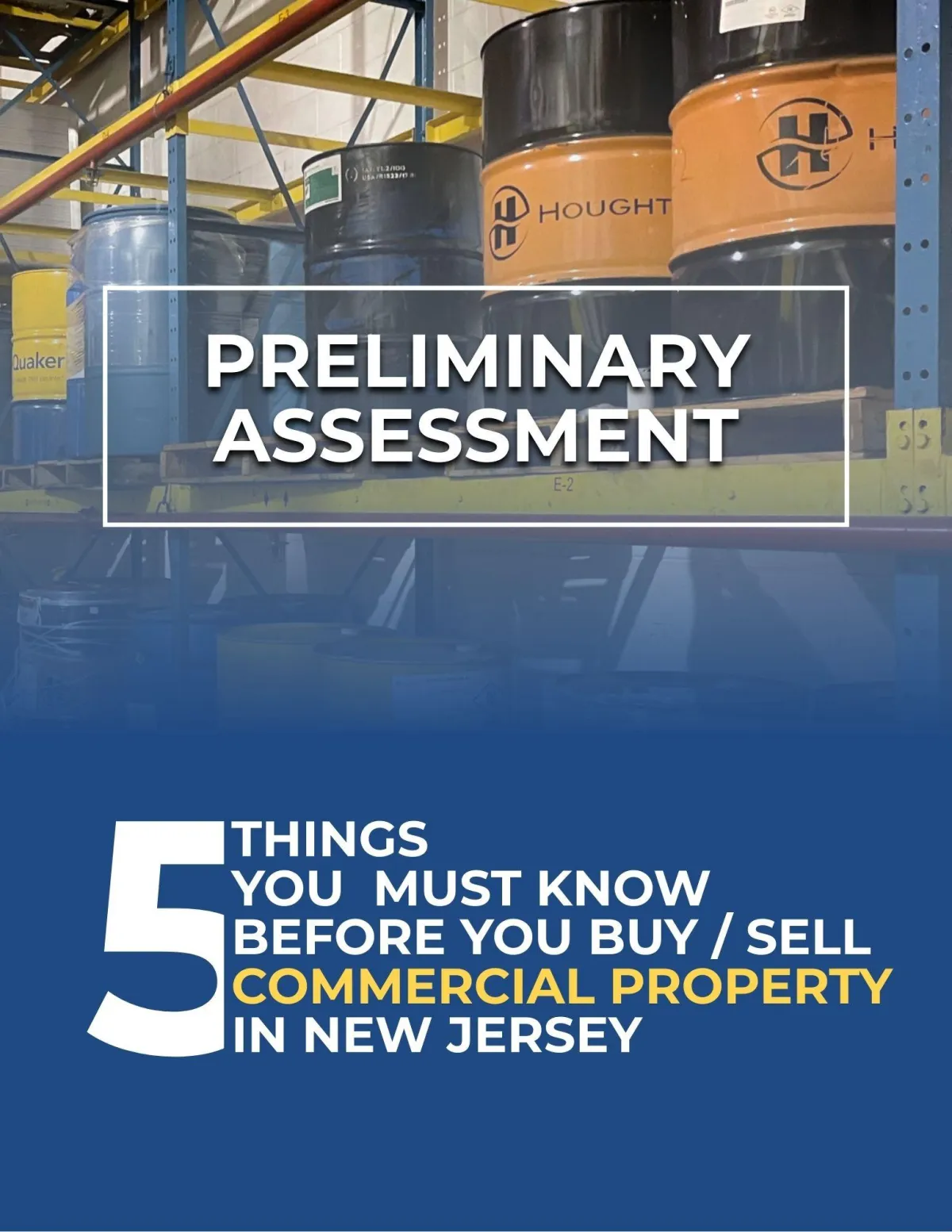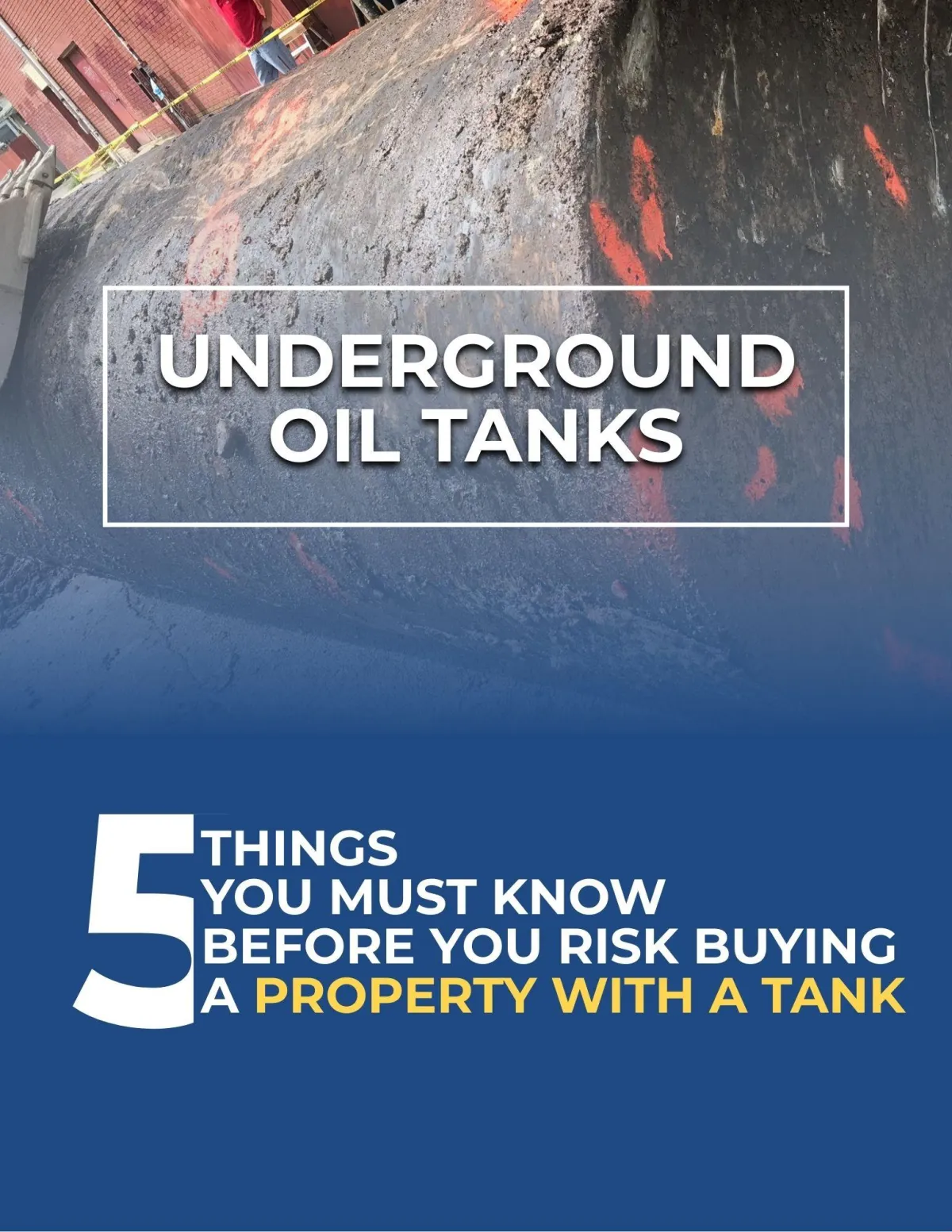
Commercial Tank Removal in
New Jersey FAQ
Oak Environmental helps businesses, property owners, and developers manage commercial underground storage tank (UST) removals in full compliance with New Jersey Department of Environmental Protection (NJDEP) requirements. Below are answers to the most common questions about the process.
What types of tanks do you remove?
We remove underground storage tanks (USTs) and aboveground storage tanks (ASTs) used for heating oil, diesel, gas, kerosene, or waste oil at commercial properties.
Do I need a permit to remove a tank?
Yes. New Jersey towns require a permit and an inspection. Also, the NJDEP requires a Notice of Intent to Close. We’ll help you with the permits and follow local and state rules.
How do I know if a tank is leaking?
Once the tank is out of the ground, we check for signs like strong smells, stained soil, or corrosion. We also test the soil after removal to confirm.
What happens if the tank leaked?
If the tank leaked, we remove the dirty soil and report it to NJDEP. We’ll also help you with cleanup and testing.
Can I remove a tank before selling the property?
Yes—and you should. Removing the tank and getting a clean bill of health helps your deal go through faster and builds buyer trust.
How long does tank removal take?
It depends on the number and size of the tanks.If cleanup is needed, it may take longer. We’ll give you a clear timeline.
Do I need to test the soil after removal?
Yes. Commercial tank removal in NJ requires soil testing after removal.
Can you remove multiple tanks from one site?
Yes. We handle large commercial sites and can remove several tanks safely and efficiently.
What is an NJDEP case number?
If a leak is found, NJDEP assigns a case number to track the cleanup. We help manage the case until it’s fully closed.
Why choose Oak Environmental for tank removal?
We’ve removed tanks from gas stations, industrial sites, and commercial buildings across NJ. We’re fast, compliant, and know how to keep your project moving.
Do I need a permit to remove a commercial underground storage tank (UST) in New Jersey?
Yes. In New Jersey, removal of an underground storage tank requires permits from your local municipality, and in many cases notification to the NJDEP. This ensures that the tank is removed safely and in accordance with state and federal environmental regulations.
What happens if a leak is discovered during tank removal?
If contamination is found, the tank removal contractor must notify the NJDEP. The agency will assign an NJDEP Case Number, which is a unique identifier used to track environmental investigations and remediation activities. From there, soil and/or groundwater testing is required to determine the extent of contamination and the next steps for cleanup.
What is the role of soil testing in commercial tank removals?
Soil sampling is required after tank removal to confirm whether petroleum products or hazardous substances have leaked into the subsurface. If contamination is confirmed, Oak Environmental designs and implements a remediation plan in compliance with NJDEP regulations.
How long does a commercial tank removal project take in New Jersey?
In most cases, tank removal itself can be completed in 1–3 days (tank size and location dependent). If contamination is discovered, additional investigation and remediation may extend the timeline, depending on the extent of the release and NJDEP review requirements.
How does tank removal affect commercial property sales or refinancing?
Lenders, attorneys, and buyers typically require proof that a property is free of underground storage tank liabilities. A properly documented removal and, if necessary, NJDEP “No Further Action” (NFA) or Remedial Action Outcome (RAO) letter helps protect against liability and facilitates smoother transactions.
Who should perform my tank removal?
Commercial tank removals should always be performed by licensed and experienced environmental consultants who understand NJDEP regulations. Oak Environmental specializes in commercial projects, ensuring full compliance, defensible documentation, and minimal disruption to property transactions.
KEY
TAKEAWAYS
Permits are required for commercial tank removals in New Jersey.
NJDEP must be notified if contamination is discovered, and a case number will be assigned.
Soil testing is mandatory after tank removal to confirm whether leaks occurred.
Proper documentation protects property owners during sales, refinancing, or redevelopment.
Partnering with an experienced consultant like Oak Environmental ensures compliance and peace of mind.
FREE GUIDES
Protect your deal and your budget.
Get our free guides to NJ environmental issues before you commit.




Contact Us
Ready to Solve It?
Let’s Talk.
Safe. Simple. Compliant.
We Help You Solve Environmental Problems
At Oak Environmental, we check properties for problems and help clean them up. We make sure everything follows the rules. You’ll get clear answers, fast help, and no surprises.
127 Vroom St, Trenton, NJ 08610
551-525-3211

Serving all of New Jersey with fast, expert environmental due diligence, investigations, and remediations.
Clear answers. Strong protection. Real results.
Quick Links
Support
Copyright 2026. Oak Environmental Consulting and Services. All Rights Reserved.

